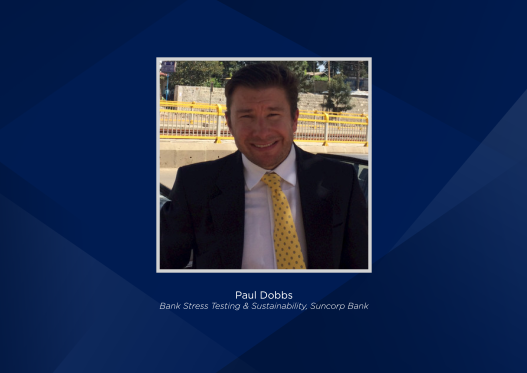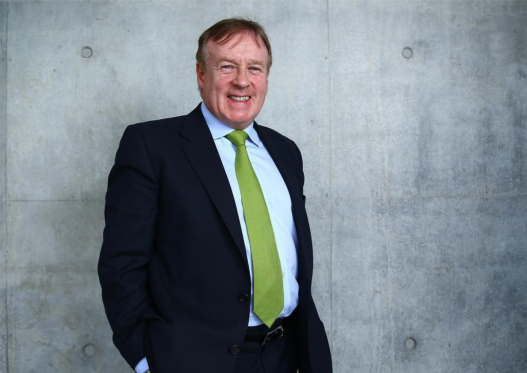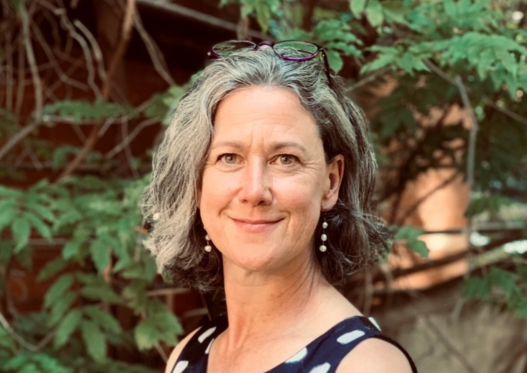FINSIA could help banking and financial services professionals get on the right side of history on climate, one of the newest Senior Fellows says.
Phillip Meyer, who is Deputy Chair on the New Zealand National Council, spoke about the role FINSIA could play in bringing experts together to become a leading authority on climate related disclosures in banking and financial services.
“I think it's a very important area for FINSIA to get involved in to work with key stakeholders and increase awareness of the role banks and investment funds can play in nudging their clients towards a lower emissions future. This is all about being on the right side of history,” said Phillip, whose career has seen him win a Legend of Tourism award for his contribution to the Sydney Olympics among many accolades.
“FINSIA can meet the need of banking professionals, by providing knowledge-gaining sessions in this area and advocate for a better understanding of climate related responsible lending.”
While the UK and the New Zealand are the only two countries to introduce legislation so far, the G7 finance ministers and central bank governors agreed at their recent June meeting to establish a framework for climate related disclosures on companies of certain categories and size. In this way, companies will need to consider their businesses, from supply to distribution chains to measure the whole emissions load of their activities and disclose them to investors and the market.
Noting the way banks will become central to these disclosure requirements that will increasingly become mandated, Phil suggested FINSIA’s role at the heart of the industry would be very attractive, given its long history of providing leading edge knowledge for financial services professionals.
“What is likely to be coming is that the banks will have to disclose the amount that they're financing that leads to emissions. The capital they will be required to support lending to particular businesses will become aligned with the emissions produced by the business, thus encouraging both banks and businesses to reduce emissions” he said.
As financial adviser on the Olympic Finance Commission who wrote the financial plan for private investment in the Olympic villages and detailed advice on risk management and foreign exchange associated with the Games, it is clear Phil is himself an expert in the kind of infrastructure planning and funding that is going to be needed over coming decades.
With businesses that fail to reduce emissions or those involved in greenwashing obviously seen as more of a risk - with attendant higher interest rates on investment borrowings - he says it’s crucial for professionals to have an understanding to ensure responsible lending.
“In the future, shareholders will want ethical investments – not only excluding alcohol, gambling and munitions as they do now, but they might well say their portfolio of investment should not fund companies that are not trying to clean up their emissions,” he said.
“Here FINSIA can position itself as a thought leader in this space. Bringing together experts from across all areas of banking and financial services is something that FINSIA does on a regular basis with the webinars and events.
“So it would be good to develop a cadre of people who are working in and want to exchange information in this area around climate change initiatives in banking and finance and to be a leading authority on the subject.
“Then if others wanted to find out something about banking and climate related disclosures and initiatives in finance which can help reduce emissions, then they would want to get involved and belong FINSIA - because that's where you'll get a good range of qualified information.
“That would be a very good thing for FINSIA to do to make FINSIA an even more attractive organisation for people to join and engage with the future role of finance in caring for our environment.
“It’s really a key part of our position on the professionalisation of the industry. For the banks, the story should not just be about profit, but about the three Ps people, planet and profit.
“If we're going look after the environment, it's not just the earth we walk on. It's not just our flora and fauna and the air we breathe, but it's the atmosphere that sustains this planet.
“Banks have a role to play here providing a platform for the knowledge that bankers of the next generation will want to understand better.”
Banks themselves will need to disclose their emissions, but it is in the area of what they are funding where they might face the greater risk.
“You'll find out whether one bank is a cleaner bank than another,” says Phil. “That might sway investors to invest in the cleaner bank, the bank adopting holistic emission reduction lending and investment policies.”
Read More:
FINSIA launches professional qualifications in New Zealand








